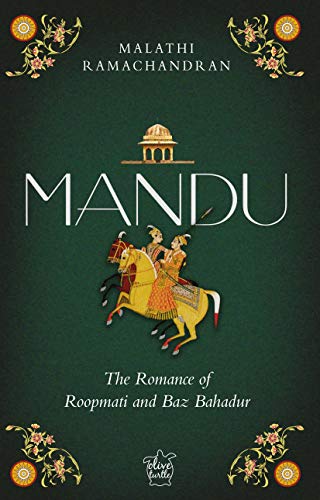Mandu: The Romance of Roopmati and Baz Bahadur
Mandu is an Indian take on the travails of lovers from different backgrounds. It is a fictionalised version of the true story of Baz Bahadur, Muslim ruler of Malwa (Mandu is the capital) and the Hindu peasant woman, Roopmati (the beautiful one).
A great strength of the novel is the extensive research, which is evident throughout. The story is embedded in recorded historical events in 16th-century India, such as the attack on Mandu by the Mughal Emperor Akbar’s general Adham Khan, who lusts after Roopmati. The reader is kept guessing as to how the story will spin out with conspiracies galore within and outside the palace walls.
The plot structure is tight and the language beautiful and lyrical, with the author bringing alive the sights and sounds of Mandu. The author is particularly adept at drawing characters who are multi-layered and who develop through the story. Baz Bahadur is ruthless but humanised by his love of music and poetry and devotion to Roopmati. Roopmati is not a passive object of desire like Helen of Troy, preferring her music to love and life in the harem. Her evolving relationship with Baz is complemented by her affection and compassion for the dwarf servant Sadiya and Mandu’s poorer citizens.
The evolution of Baz’s wife from neglected wife and bullied daughter to a woman who creates a life for herself outside the harem is equally enthralling. The servants Sadiya, Nasi and Panna are also strong characters and make their presence felt throughout the book
Overall, a wonderful book that will enthrall readers from all cultures till the very end.










